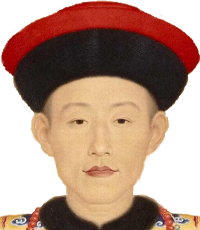Kongzi and his institutes
Kongzi, “Confucius,” has experienced a roller-coaster-like career during the past half-century – which is quite an achievement for a philosopher who has been dead for over 2,500 years. During the Cultural Revolution, 1966-76, he was reviled as an “enemy of the people” in the People’s Republic. Yet in the 1980s, Lee Kuan Yew, the prime-minister of Singapore, turned to Confucianism as an ideology which could help unify his multi-ethnic city-state. Confucianism, Lee decided, was an expression of time-honored “Asian values,” a series of moral precepts which included respect for one’s elders, the importance of family and deference to political authority.
Since the 1990s, the Communist government has radically changed its view of Kongzi. At a time when philosophers such as Karl Marx and Friedrich Engels no longer find many adherent, the Chinese authorities have begun to worry about the lack of moral direction in Chinese society. The obvious person to turn to for guidance is Kongzi. For the Chinese authorities his teachings have the added attraction that they, much as Lee Kuan Yew argued, can help promote political obedience.
Since 2004, the Chinese government has established over 300 educational institutions around the world named after the old philosopher. Modeled on the German Goethe Institute, the “Confucius Institutes” offer courses in Chinese language and organize seminars, cultural events and sponsor research on China. In contrast to the cultural institutes of other countries, the Confucius Institutes have located themselves on university campuses and integrated themselves with the teaching and research that go on there. This tight connection has been questioned by critics who point out that there are far too many topics the Communist government prefers not to discuss. The Confucius Institutes should not be allowed to influence how China is discussed.
There are indications that the Chinese leadership is not entirely united in its Confucian convictions. In early 2011, a ten meter tall bronze statue of Kongzi was unveiled with much fanfare near Tiananmen Square in central Beijing. Yet four months later, the statue suddenly vanished overnight. A descendant of the philosopher blamed “leftists” within the government. Meanwhile a contributor to a Maoist discussion forum insisted: “The witch doctor who has been poisoning people for thousands of years has finally been kicked off Tiananmen Square!”
External links
- “Confucius Statue Vanishes Near Tiananmen Square,” New York Times
- BBC News, "Confucius Institutes: The Hard Side of China's Soft Power"
- Confucius Institute Online
- Confucius Institutes around the globe
- Marshall Sahlins on the Confucius Institutes
- NYRB, "Should the Chinese Government Be in American Classrooms?"
- The Guardian, "Can Harvard’s most popular professor (and Confucius) radically change your life?"

